
China
22:46, 11-Mar-2018
Reporters' Diary: Amendments, apples and queues
By John Goodrich and Sim Sim Wissgott
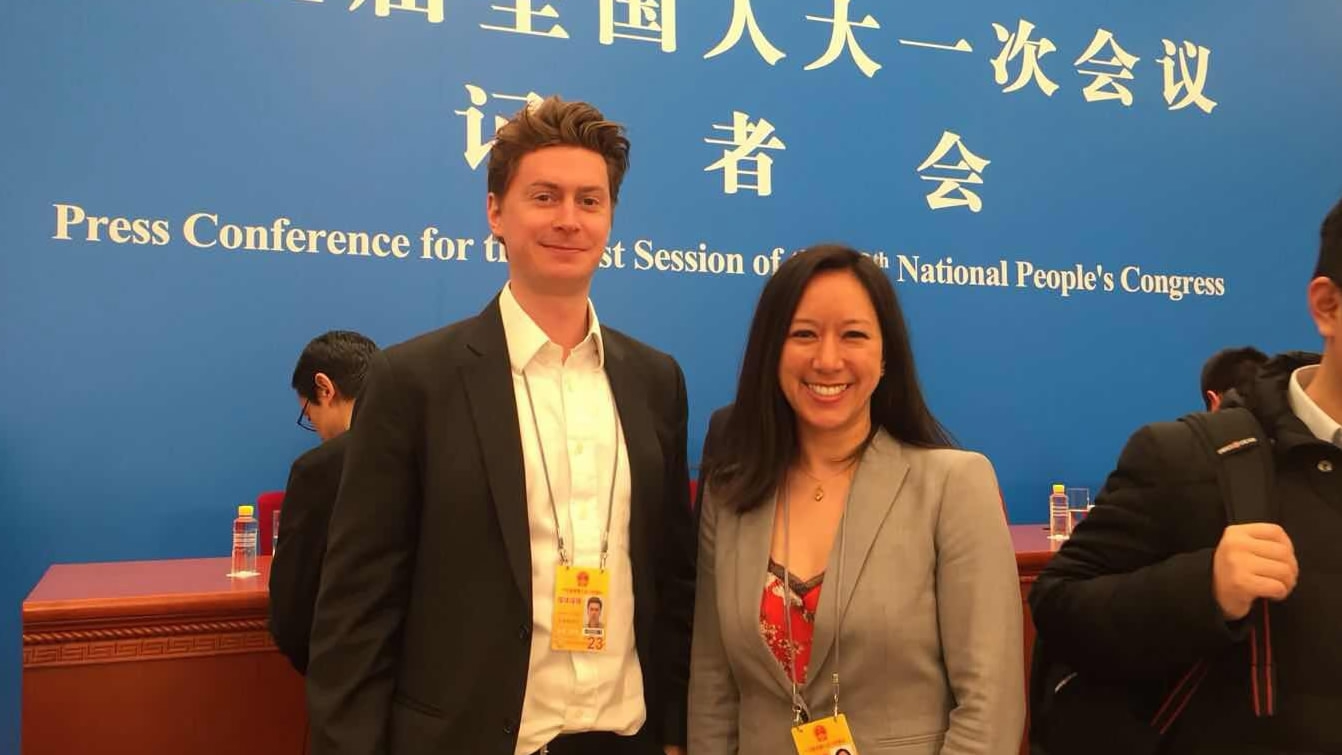
The fifth amendment to China’s Constitution – some revisions garnering more headlines than others – was passed by the National People’s Congress (NPC) in Beijing on Sunday.
One of the more eagerly-awaited afternoons of the 2018 Two Sessions began with a symbol of China’s environmental commitment – the Great Hall of the People’s central atrium, home to the “deputies’ corridor,” lay in darkness.
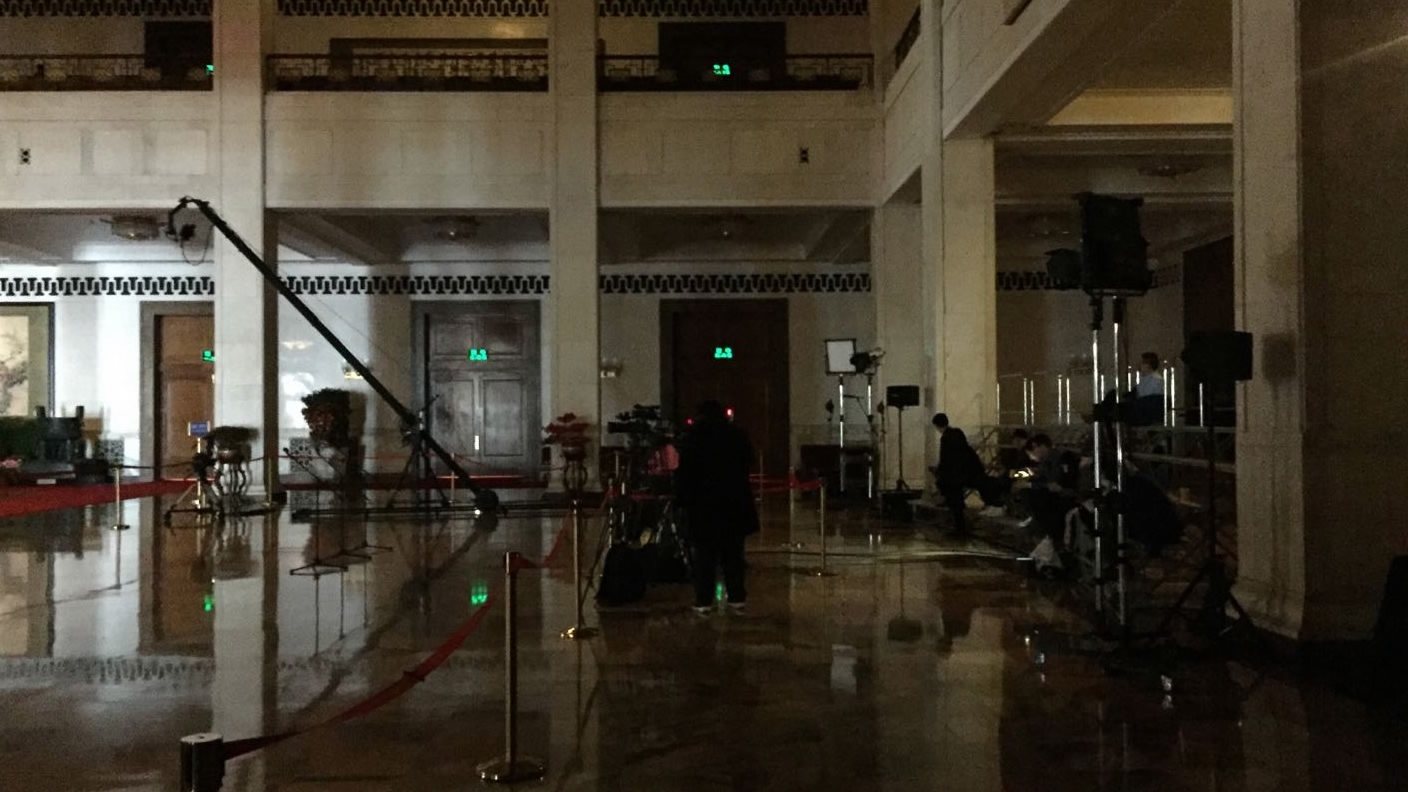
The main atrium of the Great Hall of the People before the NPC deputies arrived. /CGTN Photo
The main atrium of the Great Hall of the People before the NPC deputies arrived. /CGTN Photo
The lights were off, but ominous shapes lined the cavernous room – journalists. Abruptly, as the clock struck 13:00, the chandeliers awoke, deputies appeared, and a media scrum began.
The NPC can seem faceless from the outside, but the concerns and priorities of the deputies – and their communities – are reflected in group discussions, interactions with the media and seen in observations from the sidelines. A ringside seat at the deputies’ corridor was a small window into who these nearly 3,000 individuals really are.
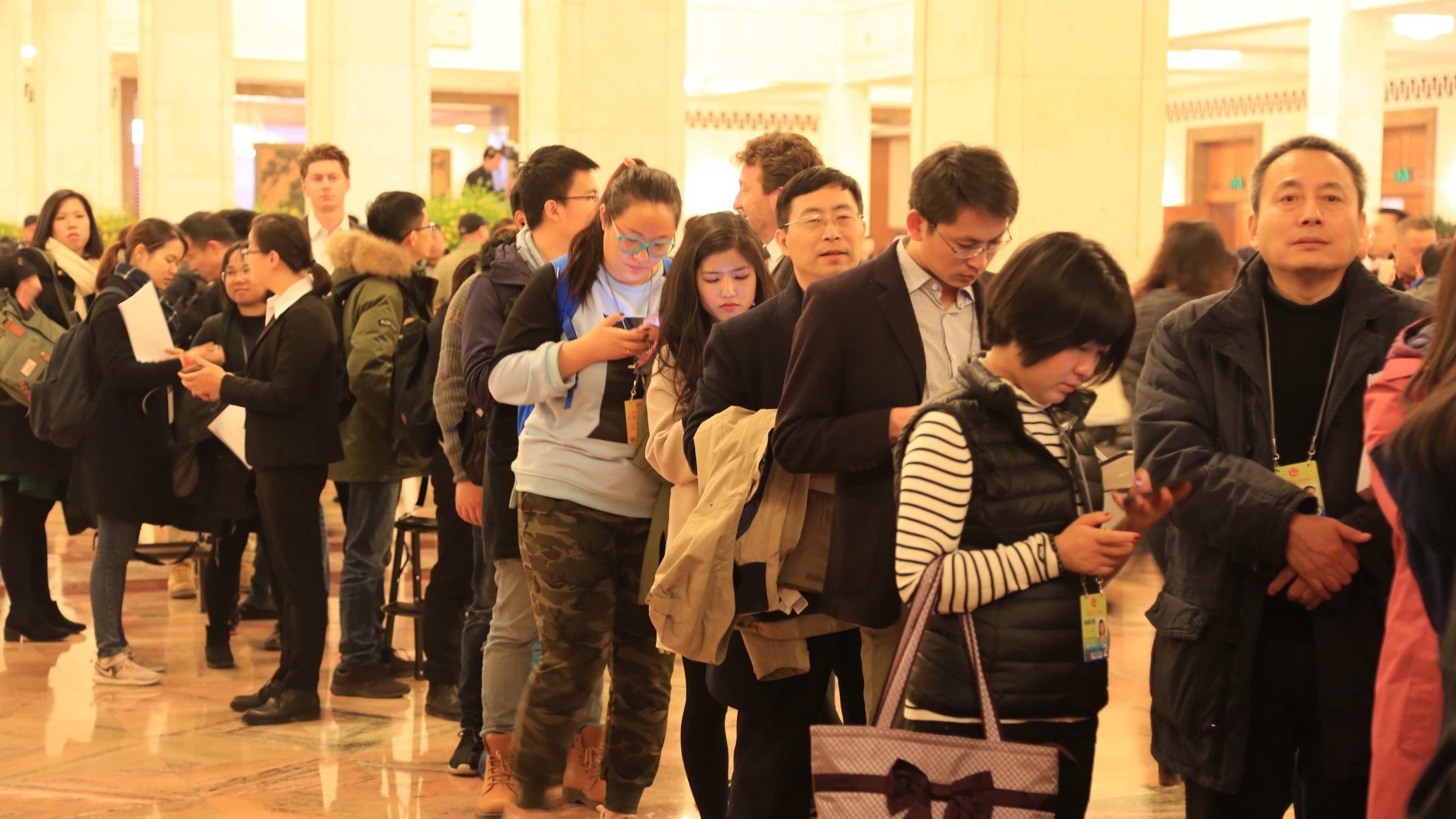
Journalists queue for the press conference that followed the vote on amendments to China's Constitution. /CGTN Photo
Journalists queue for the press conference that followed the vote on amendments to China's Constitution. /CGTN Photo
One deputy answered questions in the middle of a media melee, another tossed a red apple into the air before offering it to a security guard. Others gathered in corners sipping tea and chatting. The chairman of leading AI firm iFlyTech showed off his company’s voice translation service – a reminder that the deputies include some of China’s most innovative business leaders.
The principle of supply and demand was on full display. A queue to get a prime spot at 17:30 press conference built up as deputies finished their drinks and headed into the main hall to vote.
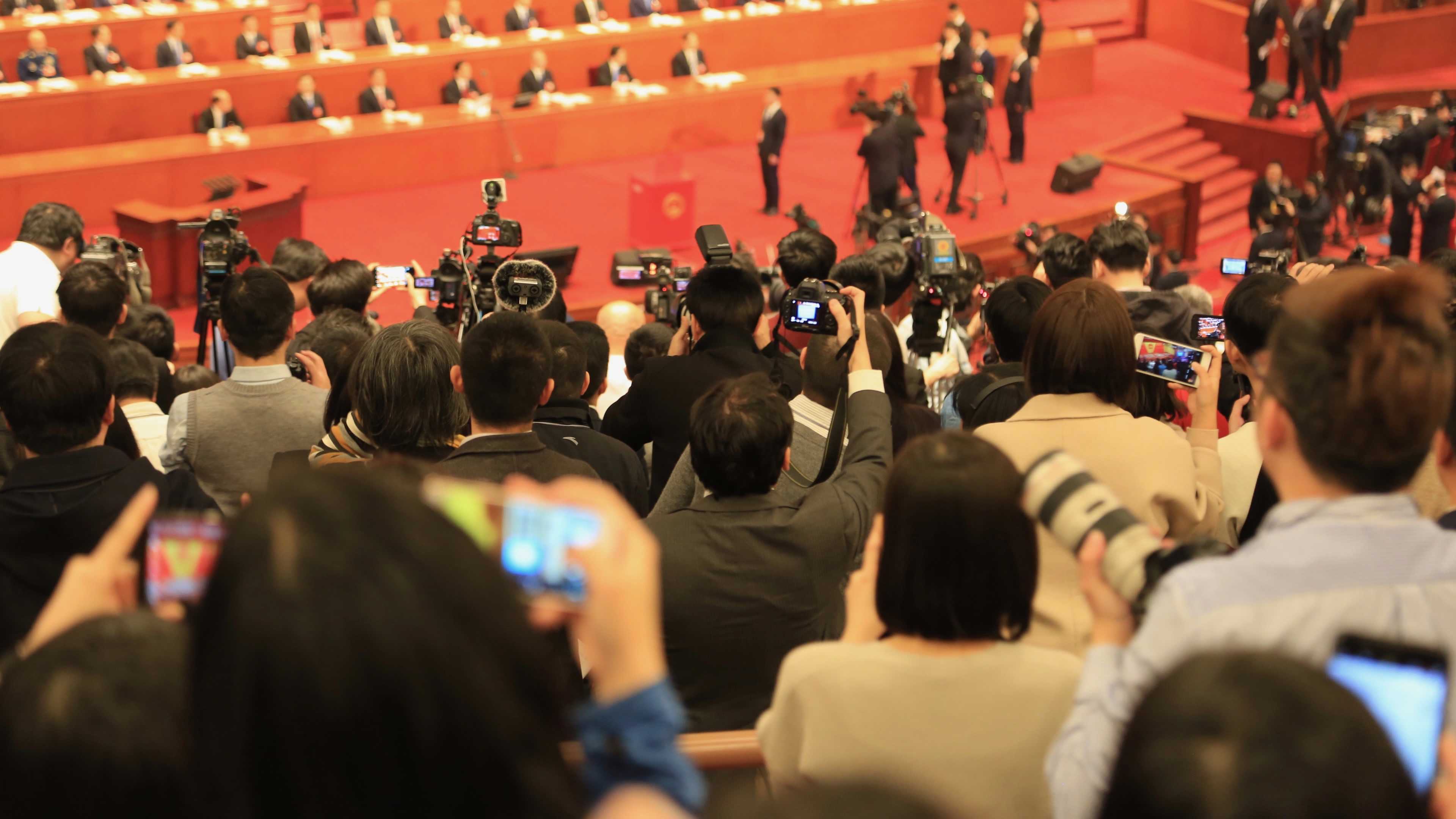
Photographers wait to capture history. /CGTN Photo
Photographers wait to capture history. /CGTN Photo
Upstairs, journalists and photographers waited to witness history. A large red ballot box stood in the center of the stage where President Xi Jinping and the rest of China’s leadership were seated. After a quick check of the box, attendants then started passing out A4-sized pink ballots.
Suddenly the relative quiet among the deputies morphed into chattering.
Then an announcement: journalists were asked to step outside while the deputies filled their ballots, leading to a good amount of grumbling. It only lasted five minutes – time for a cup of tea - and we were back.
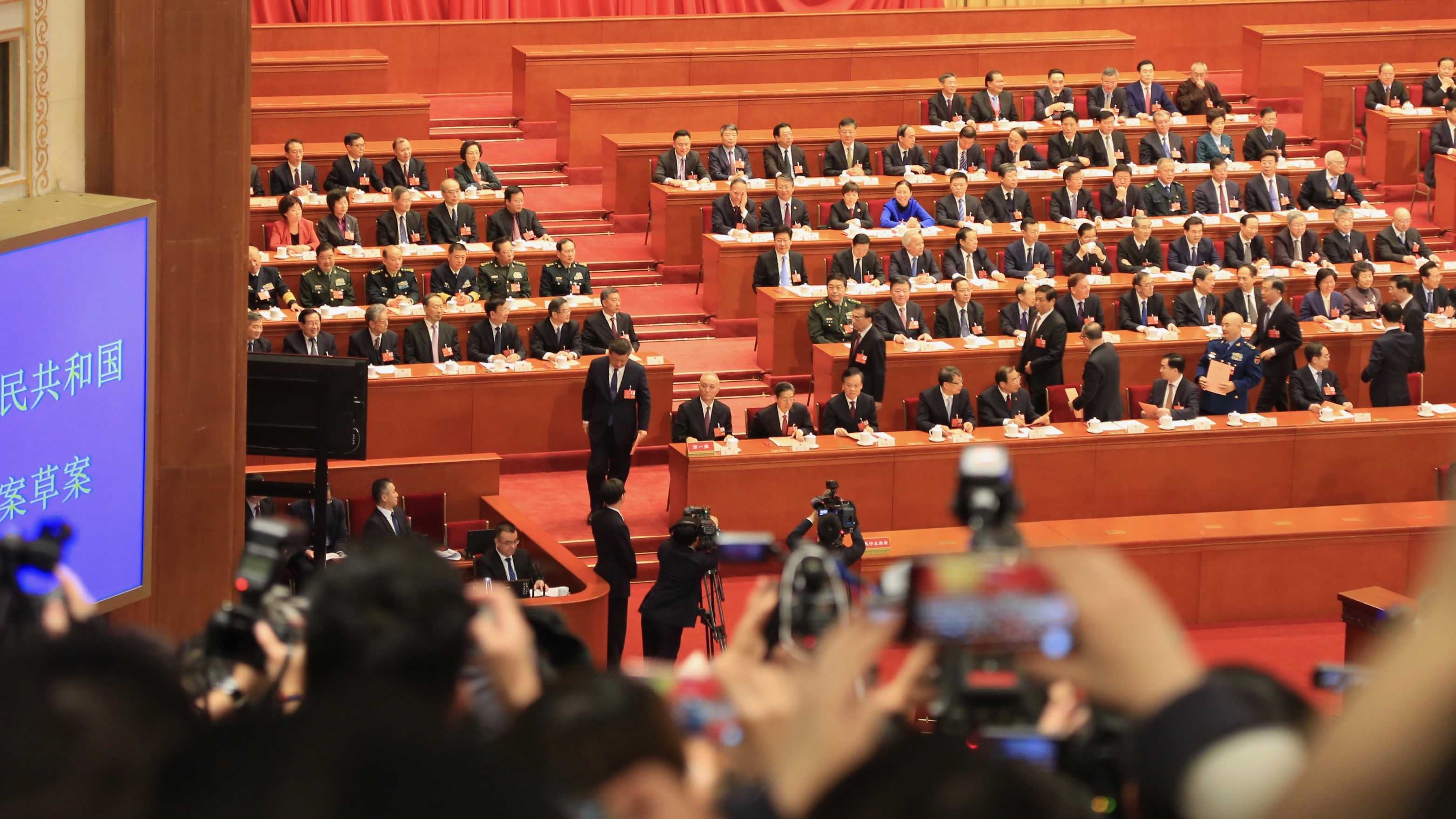
President Xi Jinping gets up to cast his ballot. /CGTN Photo
President Xi Jinping gets up to cast his ballot. /CGTN Photo
With China and the world’s media watching, Xi stood up and walked around to the front of the stage, followed by Premier Li Keqiang and the other members of the CPC Central Committee, while upbeat music played. Applause erupted as Xi slipped his pink ballot in the red ballot box.
The rest of the near 3,000 deputies in the Hall did the same at other strategically placed ballot boxes.
A short wait, and then another announcement. Numbers flashed up on the screen: at 15:52, the constitutional amendments were passed by 2,958 deputies, with two votes against and three abstentions. One vote was found invalid.
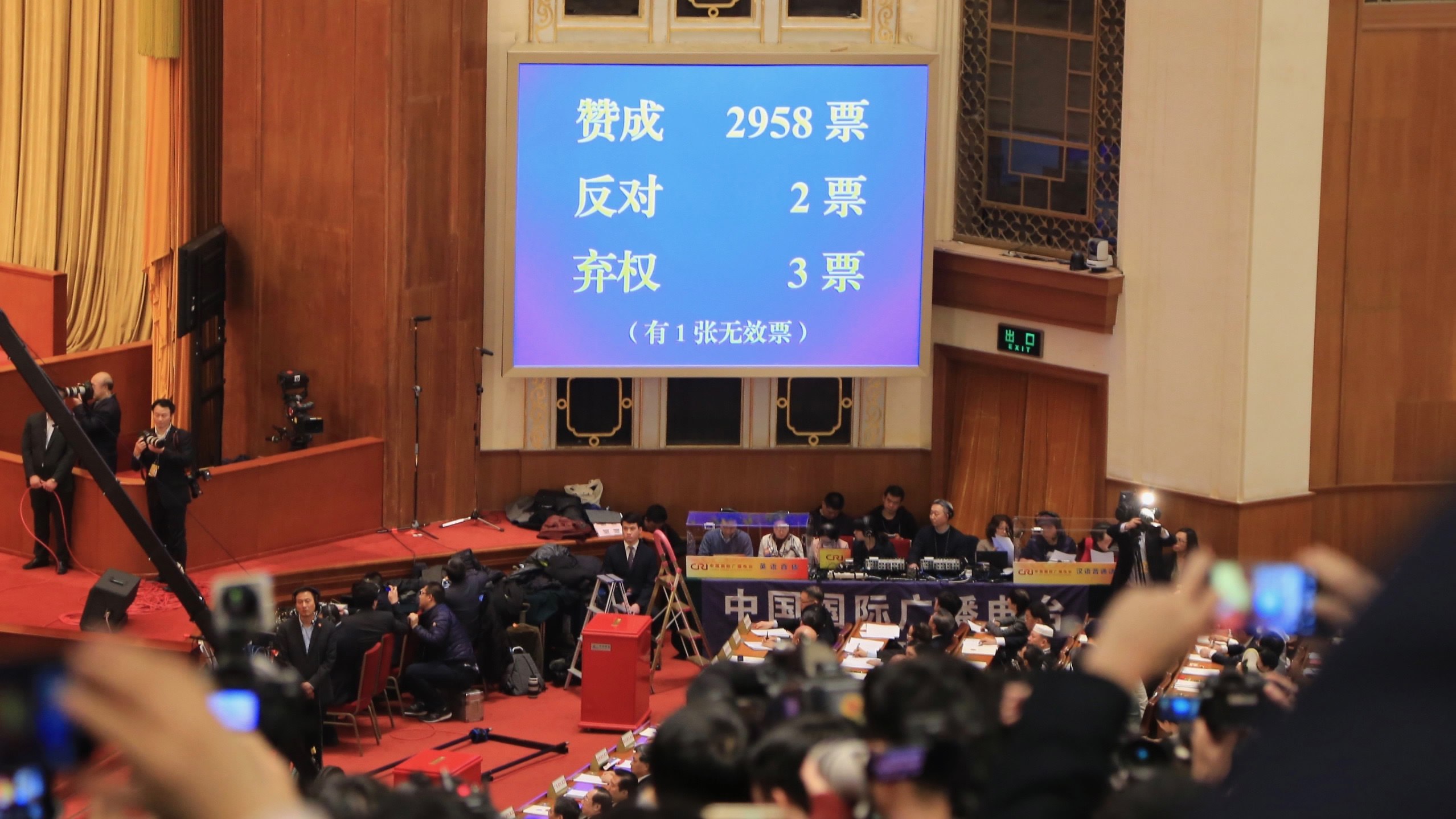
Results of the vote on constitutional amendments. /CGTN Photo
Results of the vote on constitutional amendments. /CGTN Photo
Amending a constitution is a big deal in any country. It’s, therefore, no surprise that the changes have attracted headlines around the world, with much attention on the decision to end two-term limits for the presidency and vice-presidency.
The amendments will bring the Communist Party of China (CPC) closer to the state, enshrining its position at the center of China’s development.
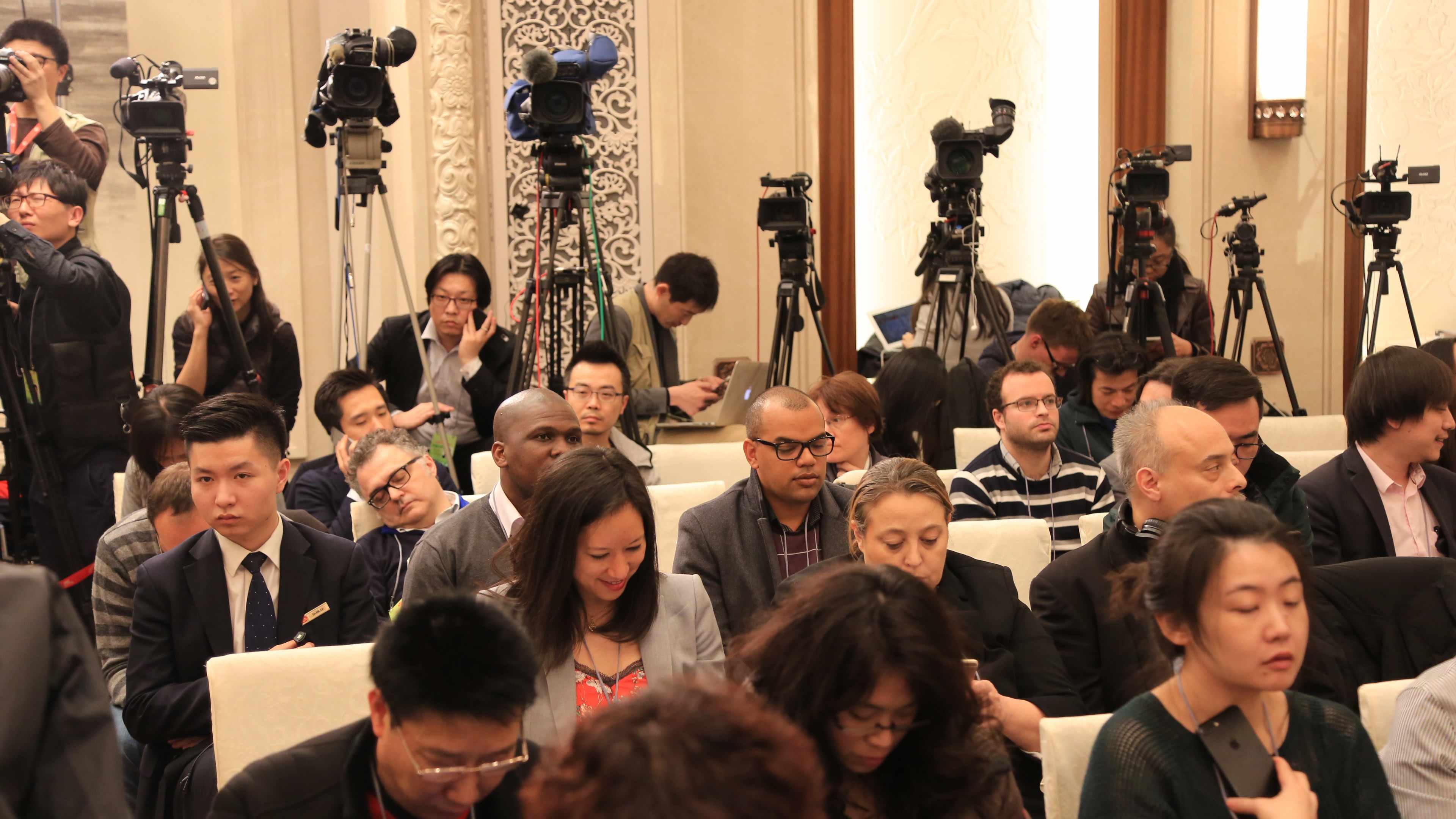
Journalists wait for the press conference on amendments to China's Constitution to begin. /CGTN Photo
Journalists wait for the press conference on amendments to China's Constitution to begin. /CGTN Photo
The Constitution now states that the CPC is “the defining feature of socialism with Chinese characteristics,” a phrase previously only in the preamble. “Xi Jinping Thought” was added to the Constitution, the establishment of the National Supervisory Commission, which will extend China’s battle against corruption, was agreed to.
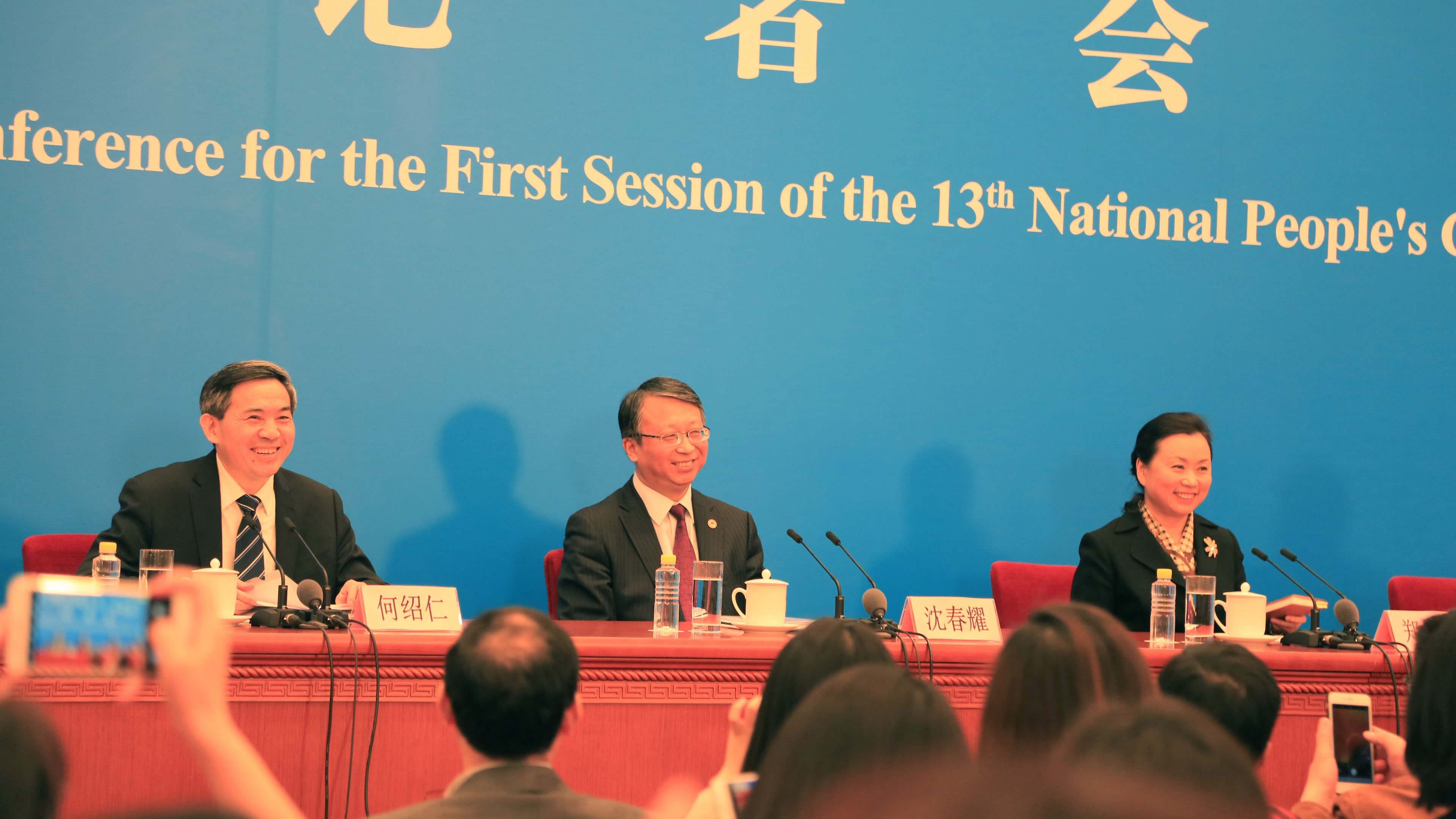
The press conference on amendments to China's Constitution begins. /CGTN Photo
The press conference on amendments to China's Constitution begins. /CGTN Photo
After the vote – and three hours of queuing – journalists fought for seats in a question-and-answer session overseen by Shen Chunyao, chairman of the Commission for Legislative Affairs of the 12th National People's Congress Standing Committee.
Questions were translated into English, answers were not. Thankfully we had the CGTN app to interpret. The answers were long and dry. Shen made a success of not creating news.
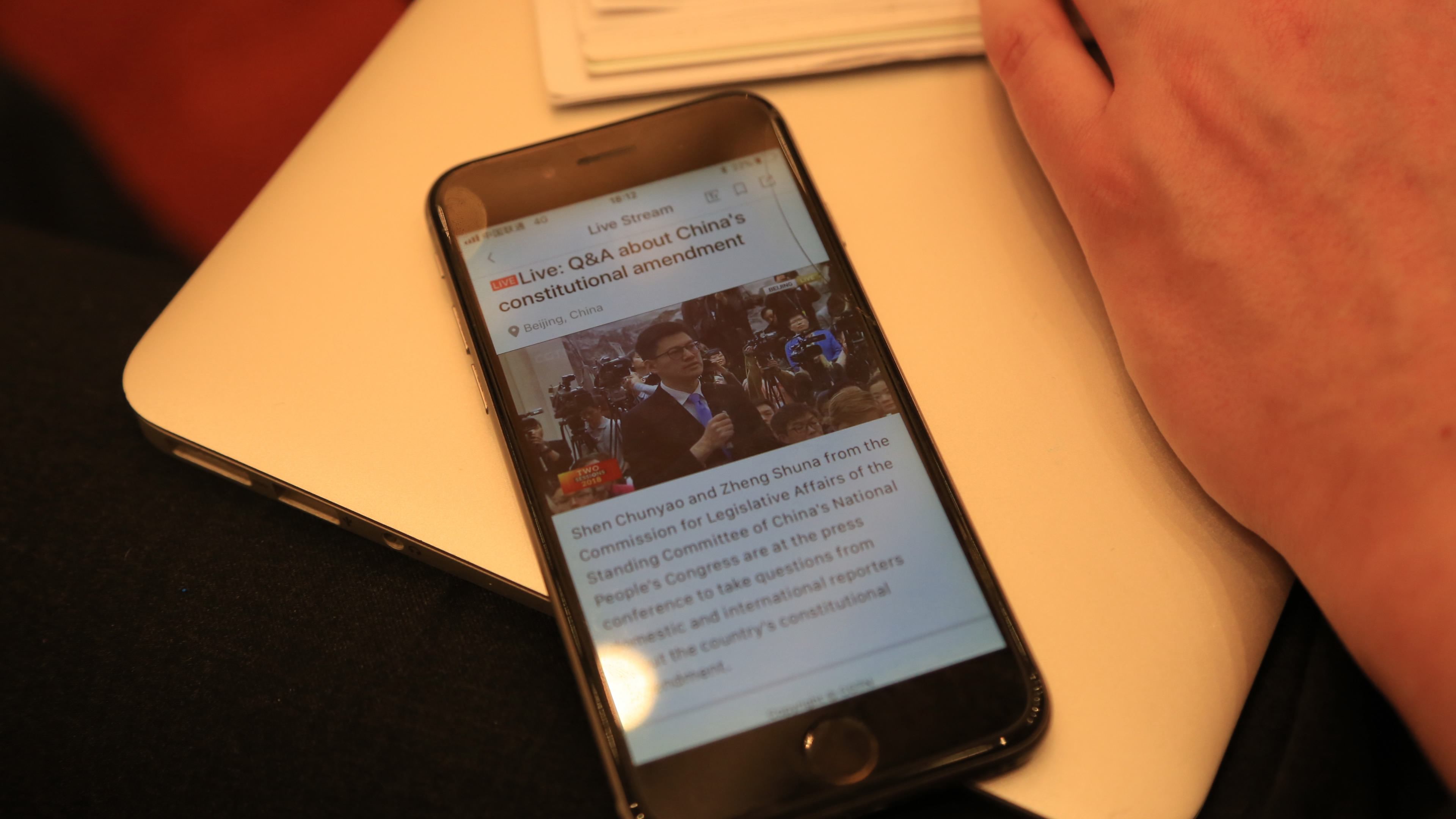
The press conference was livestreamed on the CGTN app. /CGTN Photo
The press conference was livestreamed on the CGTN app. /CGTN Photo
A flicker of relief came when the chairman realized photographers responded to his hand movements – for a second he smiled, and played to the gallery with a wave. But soon, he returned to form.
The press conference was over, the lights were dimmed in the Great Hall of the People – and with very little fuss from NPC deputies, the fifth amendment to China’s Constitution was passed.
1km

SITEMAP
Copyright © 2018 CGTN. Beijing ICP prepared NO.16065310-3
Copyright © 2018 CGTN. Beijing ICP prepared NO.16065310-3